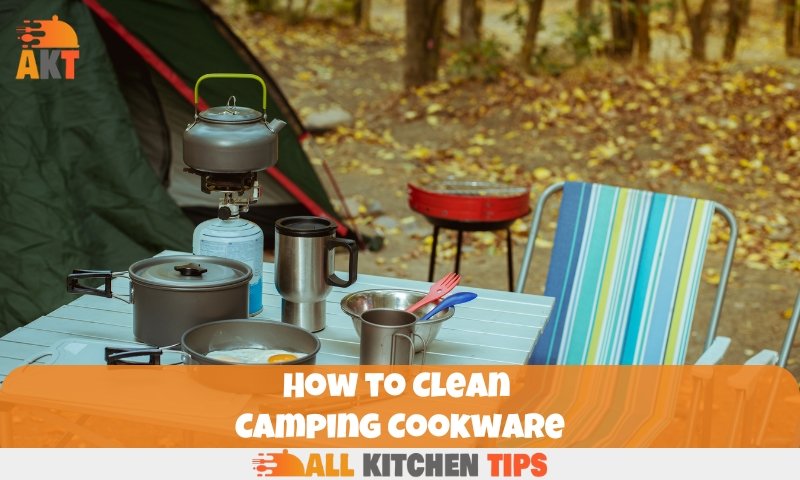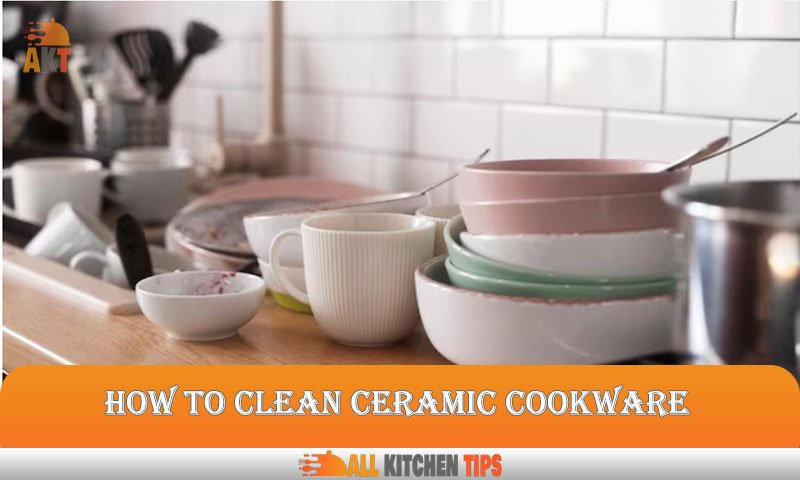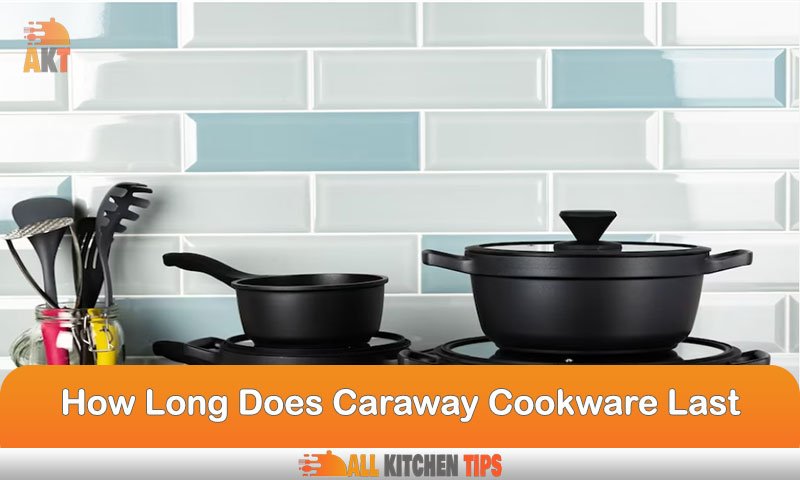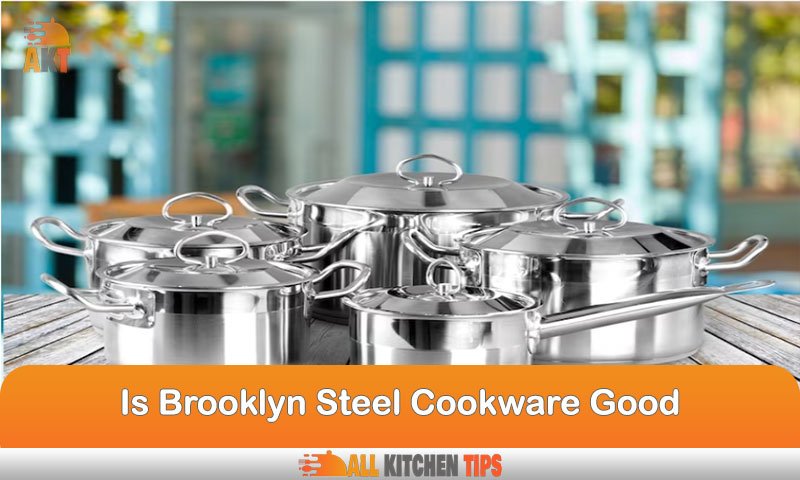To clean camping cookware, scrub with soap and water and use a scouring pad or brush to remove stubborn stains. Proper cleaning will ensure that your cookware lasts for many camping trips.
While camping, one of the key aspects to consider is having great food. This is where a camping cookware set comes into play. However, cleaning the equipment after a meal can be a tough task. Investing time and energy into cleaning cookware regularly will not only ensure it lasts for many trips but also keep it in good condition, allowing it to work properly.
This article will provide some useful tips and tricks for cleaning camping cookware to make your next adventure-filled excursion even more enjoyable.
Materials Needed

Camping is a fun, adventurous outdoor activity that many people love. It’s a great way to escape your everyday routine and experience nature in all its glory. However, camping also means being away from home and the comfort of everyday amenities such as a dishwasher.
That means you will have to wash your camping cookware yourself. Here is a guide on how to clean camping cookware, with a focus on the materials needed.
List Of Cleaning Materials And Tools Needed To Clean Camping Cookware
When camping, you must carry the necessary tools to clean your camping cookware. Here is a list of materials that you will require:
- Biodegradable dish soap: A natural, biodegradable dish soap is a must-have for cleaning camping cookware. It is gentle on both the cookware and the environment.
- Sponge or scrubber pad: A sponge or scrubber pad is required to physically remove the dirt and grime from the cookware’s surface.
- Scouring pad: A scouring pad is used to remove tough stains from cookware.
- Microfiber towel or dishcloth: A towel or dishcloth is used to dry the clean cookware after washing.
- Large pot or container: A large pot or container is used to boil water for cleaning.
- Optional: Rubber gloves – optional but recommended, rubber gloves will protect your hands from hot water and chemicals.
Explanation Of How Each Item Plays A Significant Role In Cleaning Cookware
- Biodegradable dish soap: Biodegradable dish soap is an eco-friendly alternative to regular dish soap. As it is made from natural ingredients, it is gentle on cookware and helps to reduce water pollution.
- Sponge or scrubber pad: A sponge or scrubber pad is used to physically scrub off the dirt and grime from the cookware’s surface. It is gentle enough to not harm the cookware but abrasive enough to remove stubborn food residue.
- Scouring pad: A scouring pad is used for removing tough stains, burnt marks, and food residue that cannot be removed using a sponge or scrubber pad. It is abrasive, so it must be used with care to avoid scratching the cookware.
- Microfiber towel or dishcloth: A microfiber towel or dishcloth is used to dry the cookware after washing. It is soft, absorbent, and gentle on the cookware’s surface.
- Large pot or container: A large pot or container is used to boil water for cleaning. If you don’t have access to a sink, a large pot or container filled with boiling water will be sufficient to clean your cookware.
- Optional: Rubber gloves – rubber gloves protect your hands from hot water, chemicals, and harmful bacteria.
The Importance Of Carrying These Materials With You During Camping Trips
When camping, you don’t have access to a dishwasher or a sink with running water. For this reason, it is essential to carry the necessary materials to clean your cookware. Having these materials on hand will allow you to maintain proper hygiene standards while camping.
Additionally, using biodegradable dish soap and avoiding chemicals are good for the environment.
Cleaning camping cookware can be challenging if you don’t have the correct materials. By carrying biodegradable dish soap, sponges or scrubber pads, scouring pads, microfiber towels or dishcloths, a large pot or container, and optional rubber gloves, you can ensure that your cookware stays clean and hygienic during your camping trip.
Pre-Cleaning Preparations
Explanation Of Pre-Cleaning Preparations That Must Be Taken Before Starting The Cleaning Process
Before you start cleaning your camping cookware, it’s essential to follow certain pre-cleaning steps to ensure effective cleaning. Here are some essential steps you should take before you begin cleaning:
- Remove all food particles: Before you begin the pre-cleaning process, remove all food particles from the cookware. Use a spatula or a scraper to scrape off any remaining food from the utensils.
- Soak in hot water: Fill a bucket or a sink with hot water and soak your cookware in it for some time. This will help loosen up any remaining food particles and make cleaning easier.
- Avoid using abrasive materials: Do not use abrasive materials like steel wool or scouring pads to clean your cookware. These materials can scratch or damage the surface of the utensils.
Tips And Tricks For Effective Preliminary Cleaning
Cleaning camping cookware can be an arduous task, but with a few simple tips and tricks, you can make it easier and more effective. Here are some tried and tested tips for effective preliminary cleaning:
- Use a soft-bristled brush: Use a soft-bristled brush to scrub your cookware. This will help clean the utensils without causing any damage to them.
- Apply dish soap: Apply a small amount of dish soap to a sponge or a soft-bristled brush and use it to scrub your cookware. The soap will help break down the grease and grime, making it easier to clean.
- Use baking soda: Baking soda is an effective cleaning agent that can help remove tough stains and grease from cookware. Mix baking soda with water to create a paste and apply it to the utensils. Let it sit for a few minutes before scrubbing it with a soft-bristled brush.
Different Methods For Pre-Cleaning Depending On The Type Of Cookware
Different types of cookware require different pre-cleaning methods. Here are some pre-cleaning methods, depending on the type of cookware you are cleaning:
- Stainless steel cookware: To pre-clean stainless steel cookware, use a soft-bristled brush and hot soapy water. You can also use a mixture of water and vinegar to remove tough stains.
- Cast iron cookware: To pre-clean cast iron cookware, avoid using soap as it can strip off the seasoning. Instead, use hot water and a scrub brush to clean the cookware.
- Non-stick cookware: To pre-clean non-stick cookware, use a soft-bristled brush and hot soapy water. Avoid using abrasive materials that can scratch the surface of the utensils.
By following these pre-cleaning preparations and tips and tricks for effective preliminary cleaning, you can make the task of cleaning your camping cookware easier and more efficient.
Cleaning Process

Detailed Breakdown Of The Cleaning Process, Including Specific Steps
Cleaning camping cookware is a necessary but often tedious task. The following process will ensure that your cookware remains in top condition for your future camping trips:
- Firstly, remove all food scraps and debris from the cookware. Use a spoon or spatula to scrape off any remnants and dispose of them safely.
- Rinse the cookware with warm water to remove any loose leftovers, oils, or dirt.
- Set the cookware in warm, soapy water. You can also add some vinegar or baking soda to the water to help remove any stubborn spots or odors.
- Use a non-abrasive sponge or cloth to scrub the cookware. Remember never to use steel wool or a scouring pad, as these can scratch the cookware’s surface.
- Rinse the cookware again thoroughly with warm water to remove all soap, baking soda, and vinegar residues.
- Finally, dry the cookware completely using a towel or air dry it by placing it in an upright position.
Explanation Of The Importance Of Rinsing Cookware And When To Do This
Rinsing cookware is an essential step in the cleaning process, as it helps remove any loose dirt or food residues that might have accumulated on the cookware. To ensure you get rid of all the dirt, it is advisable to rinse your cookware immediately after use.
Leaving cookware to soak or sit with food residue can cause stains or rust to form, making it more challenging to clean in the long run. Therefore, always remember to rinse off your cookware after use to make cleaning easier and to keep your camping cookware in good condition.
Tips For Using Natural Cleaning Agents Such As Vinegar or Baking Soda, or Store-Bought Cleaning Products
Cleaning camping cookware doesn’t always require harsh chemicals. Instead, you can use natural cleaning agents like baking soda and vinegar to clean your cookware. Here are some tips on how to use these natural cleaning agents:
- Baking soda: Create a paste with baking soda and water to scrub kitchen cookware gently. For more heavy-duty cleaning, boil your cookware in water and baking soda for about 30 minutes. Use a soft sponge or cloth to scrub carefully afterward.
- Vinegar: Use diluted vinegar to remove any hard water stains or as an alternative cleaning agent for dirty pans. Mix equal parts of water and vinegar in a bowl, soak your camping cookware for 30 to 40 minutes, then rinse and dry thoroughly.
If you prefer store-bought cleaners, select environmentally-friendly options with a neutral ph level. Remember to always follow the cleaning instructions on the product to avoid any damage to your camping cookware.
Drying & Storing Your Cookware
Tips For Drying Cookware Properly To Avoid Any Chance Of Rusting Or Mold Formation
After cleaning your camping cookware, it is critical to dry it thoroughly before storing it. Drying your cookware properly can prevent rusting and mold formation. Here are some tips for effective drying:
- Wipe clean cookware with a dry cloth to remove any moisture.
- Place cookware in direct sunlight to dry. Sunlight helps eliminate any remaining moisture and prevent mold growth.
- Leave cookware upside down to air dry. This technique facilitates air circulation and helps expedite the drying process.
- If possible, use a small fan to create airflow around your cookware. This circulation of air will help prevent moisture buildup and rust formation.
Techniques For Storing Your Cookware To Preserve Their Cleanliness And Quality
After you have cleaned and dried your cookware, you will want to store it properly to ensure that it maintains its cleanliness and quality for future use. Here are some techniques for storing cookware:
- Store your cookware in a cool, dry location without direct sunlight. This will prevent the buildup of moisture, which can lead to rusting or mold formation.
- Use a storage bag to protect your cookware from dust and dirt.
- Separate the cookware pieces with fabric or tissues to prevent scratches and dents.
- Place a few silica gel packs in the storage bag to absorb any remaining moisture.
- Avoid stacking your cookware, as this can cause scratches and dents. Instead, store each piece separately.
By following these simple tips, you can keep your camping cookware clean, dry, and in excellent condition for your next camping trip.
FAQs
How Do You Clean Camping Cookware Without Soap?
Boil water with vinegar and baking soda and scrub with a sponge or brush.
Can You Clean Camping Cookware Over A Campfire?
Yes, using sand and a scouring pad or a high-heat tolerant cleaner.
How Do You Prevent Food From Sticking To Camping Cookware?
Use cooking oil, butter, or spray, and ensure the cookware is heated before adding food.
Conclusion
After a long day of outdoor adventures, the last thing you want to do is labor over dirty cookware. With the tips and tricks outlined in this guide, cleaning your camping cookware can be a breeze. Keep in mind that proper storage and maintenance can also save you time and effort in the long run.
Whether you opt for natural solutions like vinegar and baking soda or specialized products, be sure to follow manufacturer instructions to preserve your gear’s longevity. By establishing a regular cleaning routine, you’ll ensure your camping cookware stays in top condition for all your future camping excursions.
So next time you hit the great outdoors, you can prepare meals with confidence, knowing your cookware is clean and ready to use. Happy camping!





